Organised by the European Commission’s Scientific Advice Mechanism
27 – 28 April 2022
Online
Website: https://bit.ly/3tRYaFr
Digital Education Stakeholder Forum
Organised by European Commission, Education Area
22 March 2022
Online
Website: https://bit.ly/36aHLnj
8th European Chemistry Congress (ECC8)
28 August – 1 September 2022
Lisbon, Portugal
Website: https://euchems2022.eu/
10th International Conference on Mechanochemistry and Mechanical Alloying
6 – 10 June 2022
Hybrid: online and Cagliari, Italy
Website: https://bit.ly/3tXg0Xw
The Nitrogen Element – Sustainable food production?
26 April 2022
Online
Registration link: https://bit.ly/3I2CLOU
European Food Safety Authority (EFSA) public consultations
A number of consultations put forward by the European Food Safety Authority (EFSA) are currently open:
- Assessments following the clock stop on endocrine disruption properties for the active substance ethephon in the context of the pesticides peer review
Deadline: 21 March 2022 - Assessment Report on the active substance 2-phenylphenol
Deadline: 29 April 2022
You can take a look at it all here.
EuChemS is an official accredited stakeholder of the European Food Safety Authority (EFSA).
European Chemicals Agency (ECHA) public consultations
A number of consultations put forward by the European Chemicals Agency (ECHA) are currently open.
- Current calls for comments and evidence
Deadline: 25 March 2022 - Consultations on draft recommendation for inclusion in the Authorisation List
Deadline: 2 May 2022 - Applications for authorisation – current consultations
Deadline: 4 June 2022
We invite you to take a look at them here.
EuChemS is an official accredited stakeholder of the European Chemicals Agency (ECHA).
European Commission Public Consultations and Roadmaps
A number of consultations and roadmaps put forward by the European Commission are currently open:
- Biocidal products – classification of a product containing capsicum oleoresin expeller pressed (draft act)
Deadline: 5 April 2022 - Chemicals legislation – revision of REACH Regulation to help achieve a toxic free environment (public consultation)
Deadline: 15 April 2022 - Certification of carbon removals – EU rules (public consultation)
Deadline: 2 May 2022 - Mercury – review of EU law (public consultation)
Deadline: 3 May 2022 - Microplastics pollution – measures to reduce its impact on the environment (public consultation)
Deadline: 17 May 2022 - Review: Restriction of the use of hazardous substances in electronics (public consultation)
Deadline: 2 June 2022
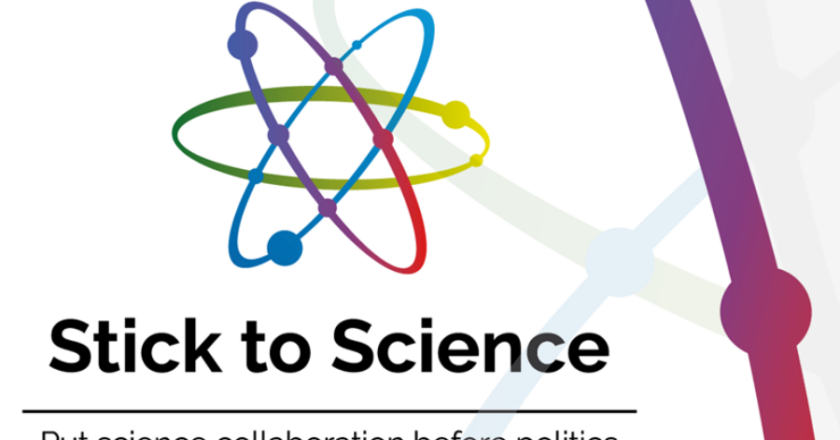
EuChemS supports an open and inclusive European Research Area
The European Chemical Society (EuChemS) signed the online campaign Stick to Science. This initiative, supported by so far more than 4,000 signatories – including scientific organisations, is a call for a barrier-free collaboration in Europe among researchers.
The signatories of the Stick to Science initiative urge the European Commission and relevant stakeholders to find an agreement to integrate Switzerland and the United Kingdom to Horizon Europe, the 7-year funding programme for research and innovation of the European Union. The programme has progressed since its launch in January 2021 without the participation of the two countries.
Read the complete EuChemS’ news.
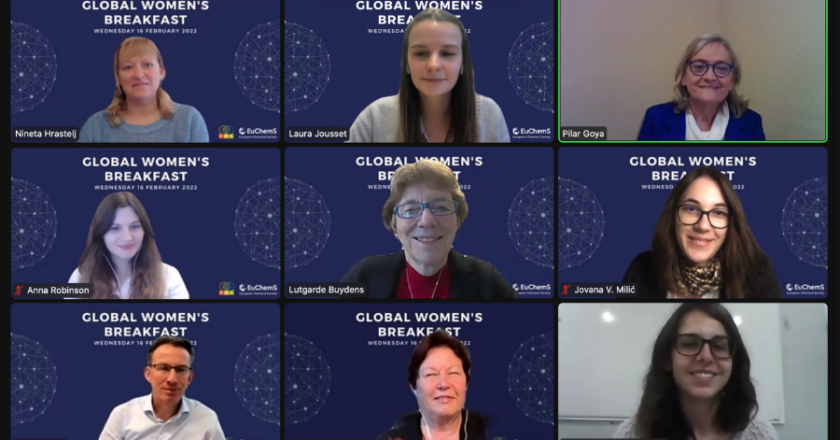
GWB events, a success story: 130+ participants to the EuChemS webinar on Women in Science
The ‘leaky pipeline’, not only a problem of terminology
The first event of the year for the European Chemical Society (EuChemS) has been its Global Women’s Breakfast, on Wednesday 16 February 2022. For this key event, EuChemS invited Lutgarde Buydens (Radboud University), Jovana V. Milić (University of Fribourg), and Lesley Yellowlees (University of Edinburgh) to address the necessity to have more women in senior positions in STEM. Amongst other topics, the speakers discussed the importance of leadership and mentorship programmes to support women’s careers in science, they presented some of the gender bias in academia and commented on current data available in this regard. This event was also an opportunity to debate on possible solutions to address the senior leadership issue in STEM.
This interactive webinar, which was chaired and moderated by Pilar Goya, EuChemS Vice-President, was yet another success: more than 130 participants from 27 different countries joined to network and debate on the topics addressed during this event. The feedback of these discussions will be carefully considered by the EuChemS Task Group on Inclusion and Diversity, for follow up actions.
Floris Rutjes, EuChemS President, welcomed the participants and reaffirmed EuChemS’ engagement to promote inclusion and diversity in the chemical sciences.
The GWB, a global meeting in support of diversity
The Global Women’s Breakfast (GWB) is an initiative launched in 2019 by the International Union of Pure and Applied Chemistry (IUPAC). The aim is to invite science organisations worldwide to set up breakfasts in celebration of the accomplishments of women in science and to inspire younger generations to pursue STEM careers. The Global Breakfast events took place each year since, in conjunction with the United Nations Day of Women and Girls in Science, which is celebrated on 11 February. This year, more than 400 breakfasts were organised in 75 countries.
Next year’s Global Women’s Breakfast is scheduled to happen on Tuesday 14 February 2023 – save the date, EuChemS will be there.
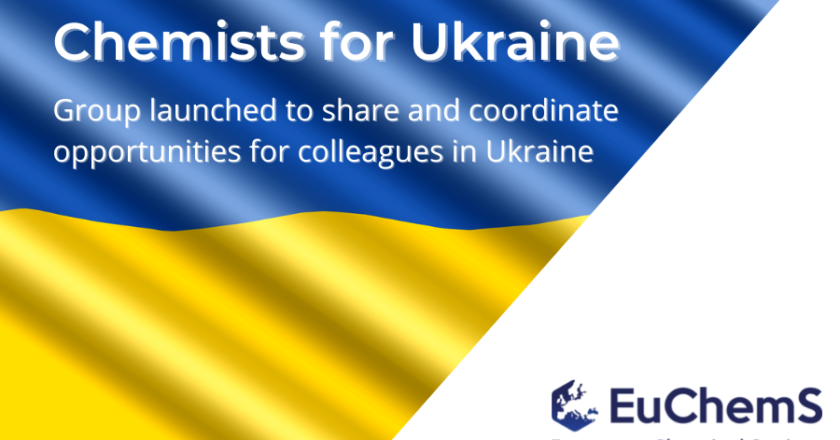
EuChemS releases a statement on the invasion of Ukraine
On 24 March, Russia declared war on Ukraine. The effects of the invasion were felt in many areas – and the scientific community is no exception. Among the sanctions aimed at Russia, the EU has decided to sever scientific ties as a way to use science as a diplomatic, ‘soft power’ tool against Moscow. One of the measures involves cutting payment to Russian participants in the Horizon 2020 and Horizon Europe research programmes. In addition, numerous higher education institutions severed their official ties with their counterparts in Russia.
The Executive Board of the European Chemical Society has released a statement condemning the invasion of Ukraine and expressing solidarity with Ukrainians. As an international society, EuChemS firmly believes in peaceful, global scientific cooperation, and calls upon leaders of Europe and the world to halt violence.
You can read the full statement here.
A LinkedIn group has been created to share job vacancies, educational opportunities, or any other initiatives for Ukrainians among members of the European chemistry community. The goal of this group is to support students and researchers working in the chemical sciences from Ukraine, and to maintain international scientific cooperation.
If you, or your network has any opportunities for Ukrainian scientists, we invite you to join the group.
Alongside EuChemS, numerous other scientific organisations condemned the unprovoked attack, including The International Union of Pure and Applied Chemistry (IUPAC) and the Royal Society of Chemistry (RSC), whom, amongst many others, released statements on the issue. In addition, 168 Nobel laureates also signed an open letter expressing their support for Ukraine.
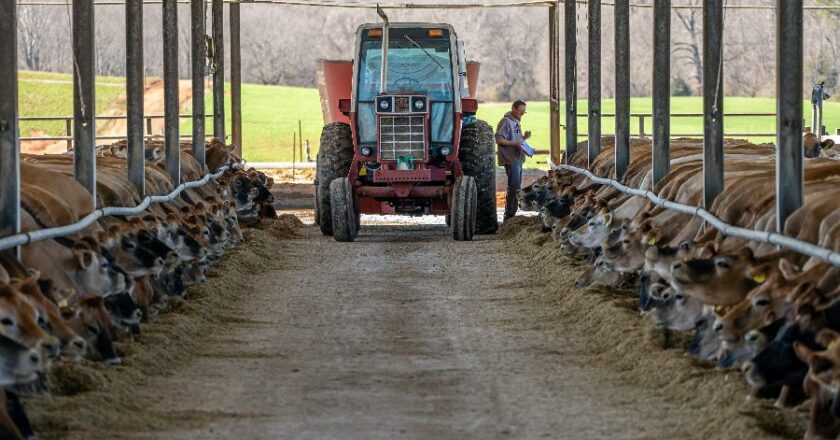
Veterinary medical residues in food continue to fall
The latest data of the European Food Safety Agency (EFSA) shows that in 2020, only 0.19% of the food samples contained residues from veterinary drugs that exceed the legally permitted maximum levels. This is an improvement over 2019’s 0.30% compliancy rate, and the lowest figure of the past 11 years. Compliancy rates increased for numerous substances, including antithyroid agents, steroids and resorcylic acid lactones as well as anthelmintics, organochlorine compounds, organophosphorus compounds, dyes and “other substances”.
Non-compliancy rates vary across product groups – pigs and poultry having the lowest non-compliancy rates while honey, farmed game and will game were the most non-compliant. Most – 9 out of 12 – food groups reported a non-compliancy rate than 1%.
The detailed data can be found and viewed via an interactive data visualization tool at the EFSA’s webpage.
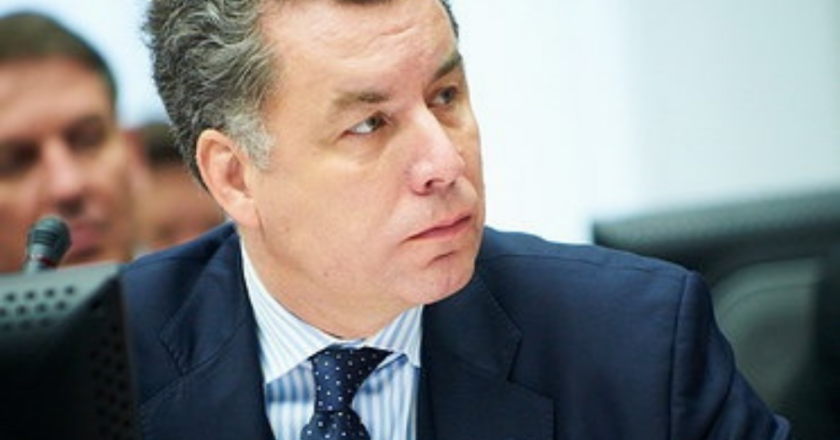
Christian Ehler is the new STOA chair
Christian Ehler is the new STOA chair
MEP Christian Ehler is the new chair of European Parliament’s Panel for the Future of Science and Technology (STOA), following Eva Kaili. MEP Ehler was elected on 10 March, after being the rapporteur for the Horizon Europe research programme. As a shadow rapporteur, he also contributed to topics on cultural recovery and to budget guidelines for 2022 and 2023.
You can read more about MEP Ehler here and about the entire new STOA leadership here.
The STOA panel is tasked with aiding policymaking by independently assessing new technologies. The European Chemical Society (EuChemS) collaborated with STOA on multiple occasions. In 2011, EuChemS, Cefic and STOA co-organised the workshop “Chemistry for a better life”, and in 2016 EuChemS, EFMC and STOA jointly organized a working breakfast about Antimicrobial Resistance.
Learn more about the activities of STOA here.

PFAS compounds in firefighting foams to be banned throughout the EU
In order to prevent further groundwater and soil contamination and health risks for people, the European Chemicals Agency (ECHA) has proposed an EU-wide restriction on all per- and polyfluoroalkyl substances (PFASs) in firefighting foams. At the request of the European Commission, ECHA investigated the environmental and health risks posed by the use of PFASs in firefighting foams, and after the enquiry, they concluded that an EU-wide restriction is justified as the PFASs risks are currently not adequately controlled and releases should be minimised.
All PFASs, or their breakdown products, have been found to harm human health or the environment. The proposed option by ECHA aims at banning the placing on the market, use and export of all PFASs in firefighting foams after use or sector-specific transition periods, to control their associated risks. If adopted, the restriction could reduce emissions of PFASs into the environment by more than 13 000 tonnes over 30 years. Additionally, five European countries (The Netherlands, Germany, Denmark, Sweden, and Norway) are working on a restriction proposal covering all PFASs in other uses, to be submitted to ECHA in January 2023.
A six-month consultation will be now performed by ECHA Scientific Committees for Risk Assessment and Socio-Economic Analysis, to assess the proposed restriction options. The European Commission will take a decision on the restriction of PFASs in firefighting foam in 2023, based on this assessment.
You can read the ECHA proposal here.
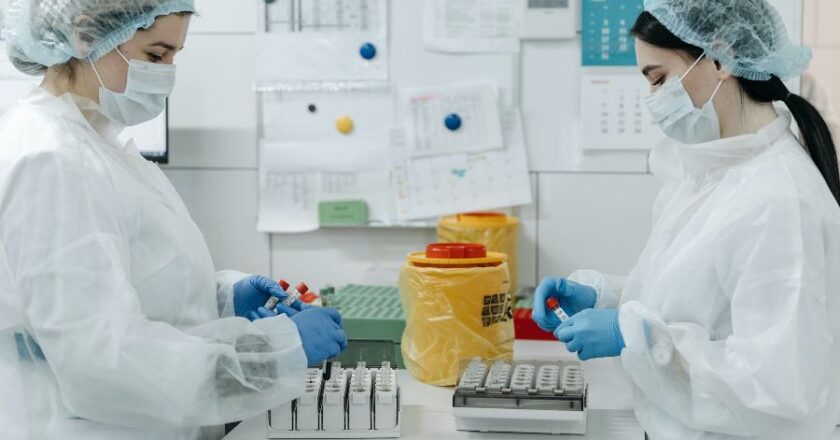
Stricter EU rules on hazardous substances exposure in the workplace
The European Parliament has published the new legislative resolution for the protection of workers from the exposure to carcinogens, mutagens and reprotoxins. This updated law entails a significant strengthening for workers’ protection against hazardous substances in the workplace, setting EU-wide occupational exposure limits.
Reprotoxic substances, which are harmful to reproduction and can cause impaired fertility or infertility, have been included within the scope of the Directive on limiting workers’ exposure to carcinogens, mutagens or reprotoxic substances for the first time. As stated in the new agreement, healthcare workers dealing with hazardous medicinal products (half of which are reprotoxic) must receive sufficient and appropriate training on how to handle them safely. In addition, the text calls for the establishment of an indicative list of HMPs by the end of 2022. The occupational exposure limits for acrylonitrile and nickel compounds are provided, and the maximum limit for benzene has been revised. Also, a reduction of occupational exposure limit to crystalline silica dust, which has been associated with elevated rates of lung cancer and silicosis, is requested in the text.
After Council’s approval, this Directive will enter into force on the twentieth day following its publication in the Official Journal of the European Union. Member states will have two years to transpose the directive after its entering into force.
Read more about it here.
In the January 2022 issue of the EuChemS Brussels News Updates (BNU) newsletter, we informed you about the provisional agreement reached by the EU Council and the European Parliament to update the carcinogens and mutagens Directive. Find out more about it here.

The EU exceeded its targets to cut greenhouse emissions
The European Union has exceeded the objectives set to reduce greenhouse gas emissions by 2020. The initial aim by 2020 was to reduce emissions by 20% compared to 1990 – this was exceeded by 11%, as estimated data shows that emissions were 31% lower in 2020. While this is certainly good news, longer term predictions are still not wholly optimistic.
A large drop in emissions in 2020 was a consequence of the COVID-19 pandemic. Despite this, the predicted net reduction by 2030 would be only 41%, while the target is 55% for the beginning of the next decade. Looking further into the future, by 2050, according to the EU Green Deal objectives, the continent should become completely climate neutral.
‘Fit for 55’ is an overarching legislation package, that aims to deliver these goals. In addition, pollution-heavy sectors are involved in the EU Emissions Trading System, that incentivizes lower pollution. The effects of the ETS are demonstrated by the impressive 40% emission reduction amongst participating power plants and factories. The Effort Sharing Decision introduced national emission reduction targets – on a national level, energy efficiency was improved, and less carbon-intensive fuels were used.
The results and future challenges are well illustrated by the infographics, which can be seen here, alongside some additional information.

New sustainable regulatory framework for batteries in the EU
The European Union is working on an updated regulatory framework for batteries. The directive focuses on circular economy – the repurposing, remanufacturing, or recycling of batteries at the end of their life cycles – as well as on a more effective way of categorising and labelling them.
The demand for batteries is increasing globally, and the EU market is no exception. This is largely due to the growing popularity of zero-emission electric vehicles. MEPs called for a separate category to be added for batteries used in light vehicles, such as electric scooters or bikes, alongside the categories of batteries for cars, portable devices, and industrial storage. In addition, to ensure batteries are more sustainable, the EU environmental committee aims to guarantee that new batteries contain recycled cobalt, lead, lithium, and nickel. A label will be added on new batteries, reflecting their carbon footprints. Regarding the recycling of old batteries, higher collection targets will be introduced: 80% by 2030 for portable batteries, 85% by 2030 for light transport batteries and 100% for automotive and industrial batteries. Alongside environmental issues, MEPs also aim to prevent human rights abuses by ensuring the ethical sourcing of raw materials for batteries, via introducing a due diligence obligation for manufacturers.
Parliament is expected to back the proposed measures during the plenary session in March 2022, after which it will begin negotiations with EU governments.
Sources:
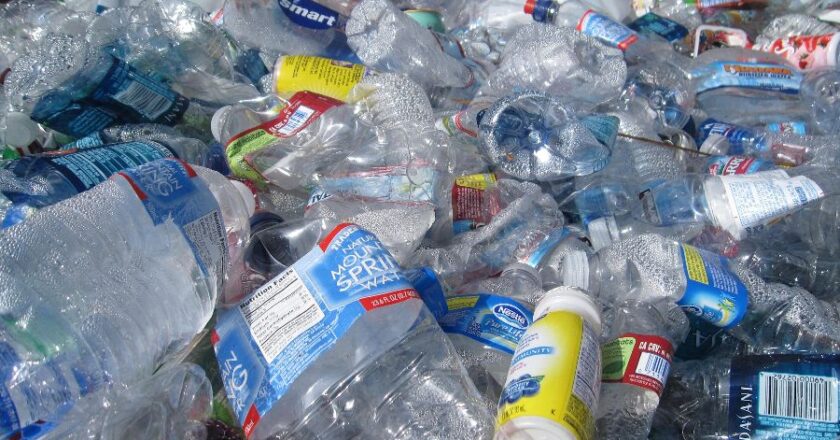
A step forward at UN Environment Assembly towards reducing global pollution
The fifth session of the United Nations Environment Assembly (UNEA-5) took place from the 28 February to 2 March in Nairobi, Kenya. The theme for UNEA’s 5th session was “Strengthening Actions for Nature to Achieve the Sustainable Development Goals” and highlighted the crucial role of nature in our lives, addressing the need of protecting and restoring nature, and proposing nature-based solutions to achieve the sustainable development goals in its three complementary dimensions – social, economic, and environmental.
This is in line with the Burlington consensus event, organised by the Royal Society of Chemistry (RSC), and the UK Government’s Department for Environment, Food & Rural Affairs (Defra). EuChemS was invited to the Burlington consensus event, during which, experts emphasized the need for a global, independent platform that can address the issues of pollution on a global scale, highlighting that such a discussion should be high priority at the UNEA-5.
Partners from all continents, agreed to launch negotiations on a new legally binding global agreement on plastics, which aim is to address some ignored issues in the existing initiatives and agreements with regard to the design and production phases of the plastics life cycle. The overall goal of the agreement is eliminating the leakage of plastic into the environment. The main proposed solutions focus on prevention, proper design and production of plastics and their resource-efficient use. The first session of the Intergovernmental Negotiating Committee will be held in the second semester of 2022 and the negotiation process is expected to end by 2024.
The UNEA conference is held every two years and brings together representatives of Member States of the UN, businesses, civil society, and other stakeholders to agree on policies to address the world’s most pressing environmental challenges. For more information about the outcomes of the Assembly, visit: Environment Assembly (unep.org)

